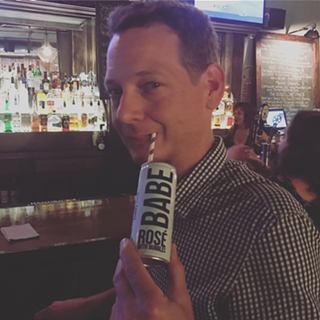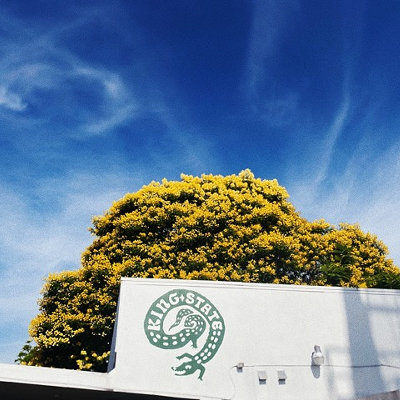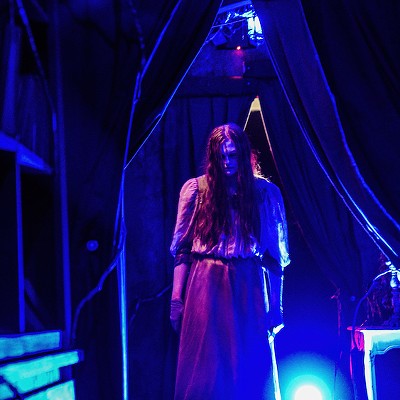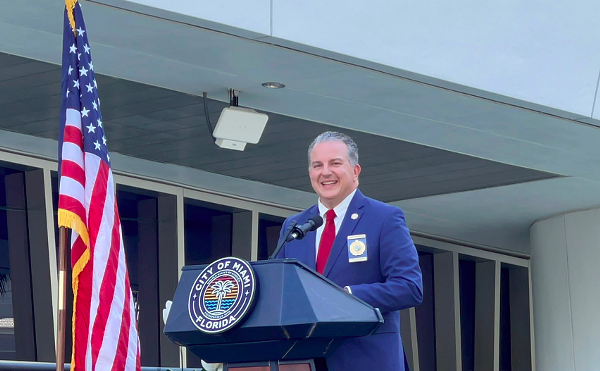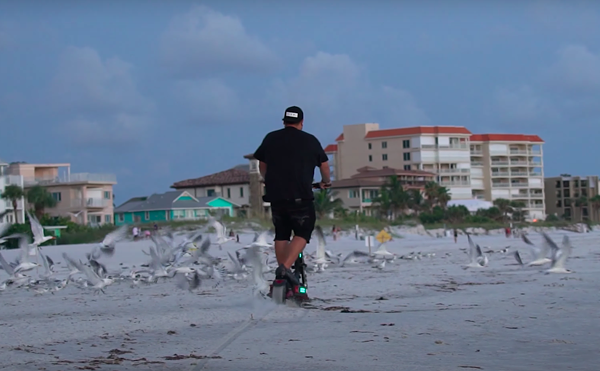Charles Thompson, the man currently known as Frank Black, has released more than 10 albums of iconoclastic, personally stylized rock 'n' roll over the last 13 years. All of them are at least pretty good; several — 1994's Teenager of the Year, '01's Dog in the Sand and the new, sprawling double-disc Fast Man Raider Man spring immediately to mind — rise to the level of required listening.
Since the band that made Thompson an icon split in acrimonious, high-profile style back in '93, when he was still known as Black Francis, Thompson has continued to make original, challenging music at an impressive clip.
It's perhaps unfortunate, then, that the band in question had to be the Pixies, one of the most revered and influential acts of the past 20 years. Because to a vast majority of alt-rock fans, Thompson is always gonna be That Guy From The Pixies.
But a legacy can be lucky thing as well, if the timing is right. Everybody who isn't deaf or your father knows the Pixies reunited in '04; hell, everybody who isn't deaf or your father saw the group at least once on the critically acclaimed, relentlessly covered year-and-a-half spate of tours that ensued. People are still talking about it — discussing the odds of a return to full-time band-dom, pining for new music, wondering what the various members are up to right now.
And That Guy From The Pixies just happens to be promoting his most ambitious and quite possibly best solo release to date.
"I'd say about half of it was actually written during a Pixies tour, and then recorded one night during that same tour," recalls Thompson during a phone conversation, while his tour bus driver catches up on some badly needed sleep somewhere in Arkansas. "And about half the record was probably written kind of in between tours and recorded in between tours."
Like last year's distinctly Americana-tinged Honeycomb, the recording sessions for Fast Man Raider Man eschewed the down 'n' dirty live-to-tape process Black favored with his former backing band, The Catholics, in favor of seeking lightning in a bottle through working with a roster of seasoned collaborators.
And what a roster. The list of players on the 27-track opus includes The Band's Levon Helm, Cheap Trick bassist Tom Petersson, Bad Company's Simon Kirk and alt-country maverick Bobby Bare Jr., as well as storied Nashville session legends like Al Kooper, Reggie Young, Buddy Miller and Spooner Oldham (many of whom also contributed to Honeycomb). Also like Honeycomb, Fast Man Raider Man was cut fairly quickly; though sessions were spread out over the length of the Pixies reunion road show and took place in Nashville and other locations, Thompson has said the actual recording time logged in at somewhere around 10 days, max.
The whole Fast Man Raider Man endeavor seems strongly reminiscent of another iconic singer-songwriter's now-legendary journey to Music City to work with some of the town's greats.
"Yeah, we used to call it Black on Blonde," says Thompson of his occasional pre-commitment conversations with producer Jon Tiven about the project, in reference to Dylan's eclectic landmark double album Blonde on Blonde.
When asked if the new process or the impressive — not to say potentially intimidating — lineup of musicians gave him any trouble along the road to realizing his personal vision, Thompson bristles slightly:
"I probably need to correct your assumption that I had any sort of vision, that I had a sound in my head I just had to get out," he says. "That's something other artists might have, but I don't work that way. I like making rock music, I like recording, I write songs, I know how chord progressions work. But I tend to not have too much vision. I might have some hunches about the way something might go, but I don't have a lot of specific ideas in mind, I just like to do it. Maybe part of that is my experience working with musicians, and the way to get what I think is the most interesting result is to not box them in a corner. They appreciate it when you say 'Hey, just do what you want; don't worry about pleasing me too much.'
"You want people to do what they do. You want their personality to shine through. That's the most interesting thing — when someone's personality shines through, you know? We're all individual little snowflakes, blah blah, etcetera etcetera. You wanna let that shine through, you don't want to put a ball and chain on that spirit."
When asked why he decided to undertake the experiment during what was surely one of the busiest periods of his performing life, his answer is much more succinct:
"Yes, well, I guess I'm just that kind of guy," he says, adopting a faux-cool movie voice and punctuating his answer with a self-deprecating chuckle.
For all its eclecticism, multiple instrumentation and nods to seminal American styles, from blues to folk to soul, one of the most interesting aural elements of Fast Man Raider Man is the subtle re-emergence of several sonic signatures Thompson employed in his days writing Pixies tunes: time-signature fuckery, unexpected chord voicings and key changes that should be jarring but aren't. These elements crop up on several of the CD's best, and most assuredly un-Pixies-like, tracks. It's a neatly inverted parallel to his earliest work, where traditional American influences like surf music and country were present in Pixies songs, but often went overlooked.
"My songwriting is much more intact than people realize," Thompson says. "There's more similarity between my records now and in the past than there are differences, from my point of view."
All right, so it's very nearly impossible to interview Thompson/Black/Francis, even about something as engrossing as his new album, without various conversational roads winding back to the fact that he's That Guy From The Pixies.
So, what's going on with the Pixies?
Thompson says he's working on some songs to bring into the rehearsal room whenever schedules permit, but if he knows anything beyond that, he's not telling.
"How do I put this gracefully? The Pixies tend to be a lucrative operation, shall we say, so it's nice when we can do that," he muses. "I think we're a good band, and we enjoyed playing together again, but we can't really keep doing the same set. I don't think we want to become a county fair band, you know? So, we're at the crossroads, basically. It's either stop, or become a band again. I could not say."


